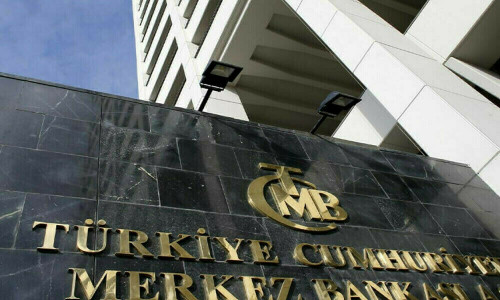Türkiye Hikes Interest Rates Amid Market Volatility
ISTANBUL: In a surprising move, the central bank of Türkiye increased its primary interest rate by 350 basis points, bringing it to 46% on Thursday. This decision reverses a previous easing cycle and provided a slight lift to the lira. This action comes after recent market instability, triggered by the arrest of Istanbul’s mayor last month.
Additionally, the bank raised the overnight lending rate to 49% from 46%. A similar increase occurred last month as an unscheduled decision was made following the aforementioned arrest.
The overnight borrowing rate also saw an increase, moving to 44.5% from 41%. This change underscores the hawkish shift in the country’s monetary policy.
The central bank’s policy committee stated that they foresee a minor rise in monthly core goods inflation for April, attributing this expectation to recent activity within financial markets.
Furthermore, leading indicators suggest that domestic demand currently exceeds projections, implying a reduced disinflationary impact.
The bank communicated that inflation expectations and pricing behavior are still a concern to the disinflation process. They added that they stand ready to further tighten monetary policy should they anticipate a considerable and sustained worsening of inflation.
After an assertive tightening approach that began in mid-2023, the central bank started easing in December, when the rate was 50%, to combat soaring prices and a succession of currency depreciations over the years.
Before the announcement, a poll indicated that most economists anticipated that the bank would maintain its one-week repo rate, while some had predicted a rise of up to 350 basis points.
Immediately following the decision, the lira’s value saw a slight increase, trading at 38.10 against the U.S. dollar. Meanwhile, the country’s benchmark stock index BIST 100 and banking index partially relinquished their gains from earlier in the day.
Last month, after the detention of Istanbul Mayor Ekrem Imamoglu, the currency had briefly dropped to a record low of 42, and stocks and bonds experienced a sharp decline, leading economic authorities to implement various measures aimed at mitigating the market consequences.
Economists suggest that the lira’s depreciation of approximately 3% is expected to raise inflation figures for April and May. In March, annual inflation had decreased to 38.1%, with a month-on-month figure of 2.46%, which was lower than anticipated.
After the central bank sold about $50 billion and bought approximately 120 billion lira ($3.15 billion) worth of bonds to stabilize the situation, the lira stabilized near 38 against the dollar, and Turkish assets recovered somewhat.
Additionally, the central bank had previously increased its overnight lending rate by two percentage points to 46% and temporarily suspended funding through one-week repo auctions, which effectively tightened funding conditions by 400 basis points.
On Thursday, the bank conveyed that it would carefully monitor liquidity conditions, noting that additional steps to bolster the monetary transmission mechanism were promptly enacted in response to the recent developments in financial markets.
This rate decision was made against the backdrop of global market instability resulting from the intensifying trade conflict between the United States and China, with both countries escalating import tariffs.



Comments (0)
No comments yet. Be the first to comment!
Leave a Comment